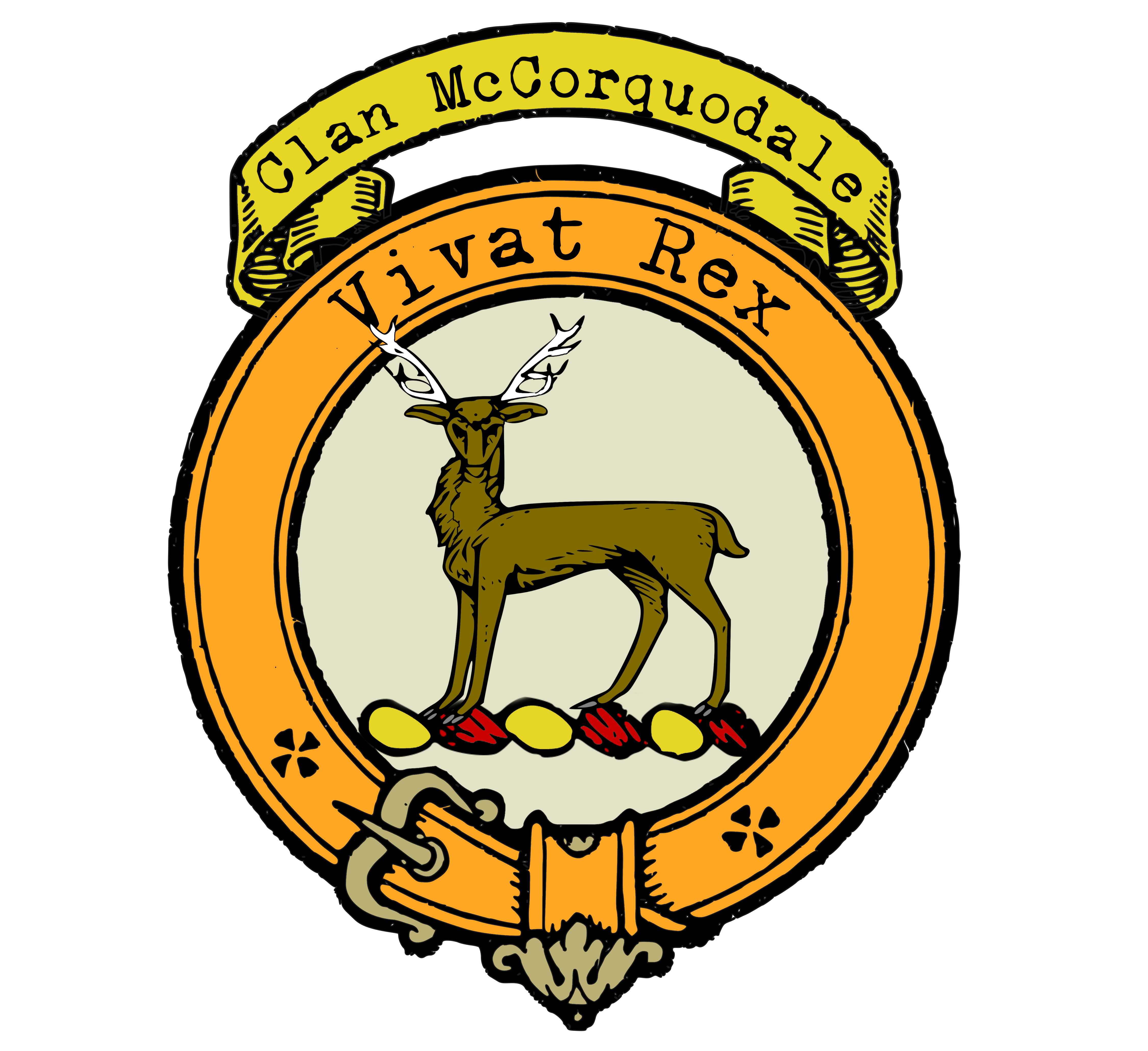History of Clan MacCorquodale

The MacCorquodale clan is one of the most notable and ancient clans in Scotland, with a rich and fascinating history dating back to the time of King Alpin and the early days of Scottish sovereignty. The clan’s progenitor was Torquil, a Norse warrior who was part of King Alpin’s army in the battles between the Picts and Scots for supremacy in Scotland.
In a great battle fought on the banks of the Carron, the Scots were defeated, and King Alpin was slain. The head of the king was taken by the victorious Picts to their fort of Camelon and exposed on a pole. However, Torquil, who was known for his bravery and daring, was not one to give up easily. Under cover of darkness, he rescued the head of his king and returned it to the Scottish camp.
As a reward for his bravery and loyalty, King Kenneth, the son and successor of Alpin, granted Torquil the whole northern shore of Loch Awe, from Avich to Ard-an-aiseig, and from Loch Etive to Loch Awe. The MacCorquodales were then known as the Barons of Fiona Eilean, named after the island on which their castle stood.
Throughout the centuries, the MacCorquodales played a significant role in the development of Scotland and its history. They were known for their bravery and their unwavering loyalty to the crown, and many members of the clan fought in battles and wars throughout the centuries. Despite their martial prowess, however, the MacCorquodales were also known for their cultural achievements, with many members of the clan being accomplished musicians, poets, and artists.
Despite the loss of their lands to their hereditary foes, the Campbells, the MacCorquodales remain a proud and distinguished clan with a rich history and heritage. They continue to be remembered and respected as one of Scotland’s great clans, and their motto, “Vivat Rex” (may the King live), serves as a reminder of their loyalty and devotion to the crown.
In recent times, many descendants of the MacCorquodales have sought to preserve and celebrate their family history and heritage, forming associations and societies dedicated to the study and preservation of their ancestral heritage. These organizations hold annual gatherings, known as Conversaziones, where members of the clan can come together to share their stories, memories, and cultural traditions, and to connect with their ancestral roots.